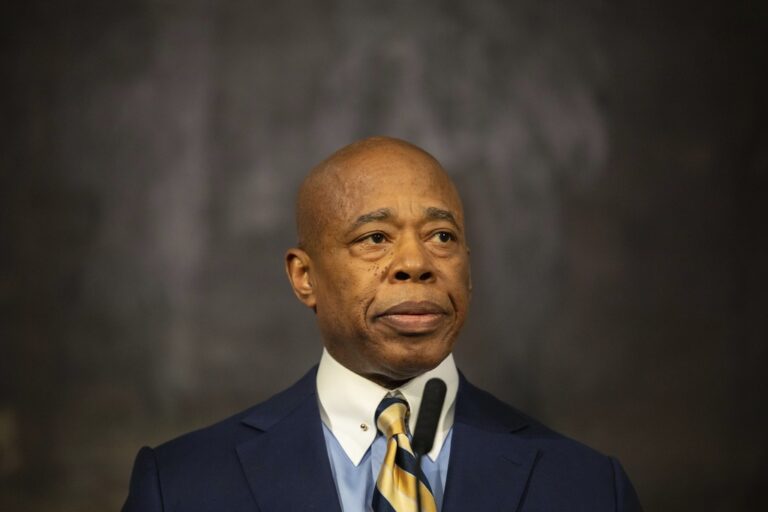I am writing to address a disturbing and deeply troubling reality within our community—the unethical and exploitative practices of certain mental health professionals who refuse to accept insurance, forcing desperate patients to pay exorbitant out-of-pocket fees.
While we frequently hear about the importance of mental health awareness, why do we not speak about the financial barriers that prevent people from accessing care? In nearly every other field of medicine, doctors work within the insurance system to ensure patients receive treatment without financial ruin. Yet, in our heimishe community, mental health providers actively avoid insurance, knowing full well that their patients—due to cultural and religious sensitivities—will not seek help outside the community.
This is not just a financial issue—it is an abuse of power. Vulnerable individuals in crisis should not have to choose between getting the help they desperately need or plunging their families into debt. Yet, many professionals exploit the stigma surrounding mental health, knowing their heimishe patients will not report them for demanding untraceable cash payments.
Even more concerning, some organizations that claim to assist struggling individuals are profiting from this crisis, steering people toward select providers who charge astronomical fees. Where is the accountability? Who is ensuring that mental health services remain accessible to those who need them most?
This situation is unacceptable and unsustainable. We must demand transparency, affordability, and ethical responsibility from our mental health providers. We cannot afford to stay silent while so many suffer—financially, emotionally, and psychologically.
It is time to demand accountability from those who claim to be healers but have instead turned mental health care into a business of exploitation.
Sincerely,
Name Withheld
The views expressed in this letter are those of the author and do not necessarily represent those of YWN. Have an opinion you would like to share? Send it to us for review.











13 Responses
This seems very one sided.
Doctors can see dozens of patience at once, spending seconds with each if even that. And yes they accept insurance, But the pennies they recieve adds up when they see so many simultaneously.
Therapists have to spend a minimum of 40 minutes per patient. If they accepted insurance as you “Demand” they would walk away with far less than minimum wage.
Have you decided they are not worthy of earning a living?
Your anger should be directed towards insurance companies, but of course it’s not, because they don’t care what you think.
The frum therpaists in our community are a much easier target.
Here’s a thoughtful and balanced response to the concerns raised in the letter:
I understand and appreciate the frustration expressed in your letter. Mental health care should be accessible and affordable for all, and financial barriers can indeed prevent people from receiving the help they need. However, having stepped into the field myself, I now see a side of this issue that is often overlooked.
While it may seem like mental health professionals who do not accept insurance are simply prioritizing profits, the reality is far more complex. The cost of becoming a qualified mental health provider is significant—between a Bachelor’s and Master’s degree, training expenses often range from $50,000 to $100,000, requiring six years of study, followed by two years of low-paid or even unpaid internships. During this time, clinicians work long hours while maintaining the emotional and mental energy required to help clients effectively.
Once licensed, the financial burden does not end. Office rent, liability insurance, supervision, continuing education, and administrative costs can add up to $5,000 to $6,000 a month, before even considering personal expenses such as housing, daily living costs, and tuition for one’s own family.
On top of this, insurance companies make it incredibly difficult for providers to sustain a practice. Reimbursement rates are often shockingly low, sometimes barely covering costs, and the administrative hurdles to get paid can be overwhelming. Many insurance companies delay or deny payments, leaving clinicians stuck in bureaucratic battles instead of focusing on their patients. This creates an unsustainable model, especially for those who strive to provide high-quality care.
It is understandable that from the outside, this looks like a case of providers exploiting a captive audience, but in reality, many therapists would love to take insurance—if only the system were designed to fairly compensate them. The unfortunate result is that some professionals are forced to choose between staying in the field they love or being unable to provide for their own families.
That said, your concerns about accessibility and financial strain on patients are valid. We need systemic change—both within our community and in the broader healthcare system—to ensure fair compensation for providers and affordable care for patients. Advocacy should focus not only on demanding providers take insurance but also on pushing for better reimbursement rates, reducing administrative red tape, and encouraging community initiatives to subsidize therapy for those in need.
I also recognize that behind your words is pain—pain from those who feel unheard, unsupported, and financially strained in their search for help. That is truly heartbreaking. Mental health care should not feel like an impossible luxury, and as a community, we need to work together to find sustainable solutions that respect both the needs of patients and the realities of providers.
I hope this helps open a more nuanced discussion—one that acknowledges the struggles on both sides and seeks to create meaningful, long-term change.
How about the mental health “experts” finding illnesses where there is no illnesses and then that makes an actual mental illness? I am a quiet woman but since women are stereotyped to be talkers, I was forced into therapy in high school to talk for the sake of talking and then if I did not talk enough I got criticized and if I said something whatever I said was nitpicked. I don’t have that many similar interests like most other girls/women so this was stressful experience.
These mental health “experts” turned my parents against me. I did all my chores, endured beatings and screaming but I kept my grades up as I will be punished harshly for low grades. Now I have to socialize as well. I have to make a fool out of myself to socialize as I really have nothing to say most of the time.
I learned bad habits and took it to work with me. I was fired from one job and nearly got fired from the second because I was attempting to “yenta” by complaining about my job even though I actually am a hard worker. I saved my job through the skin of my teeth. I did everything the opposite of the forced therapy and I rebuilt my reputation. But now I shut down and refuse to talk with most people except my direct family.
When I say my story all I get is “not all therapists are good,” find another therapist,” etc. The point is I would not have this issue in the first place if the therapy was not shoved down my throat. I am now dealing with craziness but I am such anger against therapy that when i go to any therapist it goes in one ear and out the other.
I have no interest in therapy to undo the damage of the bad therapy. I pull myself by the bootstraps and I am resentful for this overrated profession loved by nearly everyone. I still have bouts of craziness but I just have to endure them. I reached out to my high school principal and she apologized for what was done to me and asked for Mechila and a few back and forth emails later she then said that she has no time for me “we only had good intentions” and cut off all contact with me. Plenty of time to nearly ruin me but no time to help my healing process. I hate therapy as much as an antivaxxer hates vaccines.
I hate how therapists and all related professions are the arbitrators of what is considered normal. A teenage girl not interested in typical teenage girl stuff and therefore does not socialize as much even though she does talk when she wants to is considered a flaw and forced into the therapy pipeline. We are not allowed to have differences and unique quirks outside the stereotype.
I’ve had an extremely disappointing and exploitative experience with a therapist. Over the course of a year and a half, I invested approximately $15,000, only to feel taken advantage of and betrayed.
This therapist consistently postponed addressing my trauma, promising to ‘deal with it later.’ Meanwhile, he asked me to recommend him to others, praising him as the ‘best therapist in town.’ I later discovered that he had misrepresented discussions with my doctor, further eroding my trust.
To make matters worse, he frequently used foul language during our sessions. I’m sharing my story to highlight the need for greater accountability in our community, particularly in the mental health profession. Vulnerable individuals seeking help deserve better.
It’s horrendous. The prices are through the roof. Parents, who would do anything to help their kids, pay the price because they have no choice. I know I know – they have expenses too… sorry, I don’t buy it. No one needs to charge $400 an hour to make a decent living. Off the backs of desperate people that just need help.
The issue is a real one that many struggle with financially, although a quick google search shows that this problem is not unique to the frum community. If there is a demand for out of pocket, why would a therapist want to deal with insurance.
A few points from someone in the mental health world
1)Professionals have 50-150k of student debt plus years of not making a salary in crummy internships
2) there are plenty of cheaper therapists that take insurance
3) every industry works this way…you pay more for better services
4) the burnout rate for therapist is incredibly high…you are paying from him/her to carry many people pain around 24/7
5) therapist make a lot per hour but do not work 9-5 and are limited to how many clients they can take and treat effectively
6) Most therapists that I know are far from rich
7) We pay thousands of dollars a year for trainings and our own therapy.
I honestly take offence at your tone.
You make assumptions based on little information and are accusing us of being extortive and evil.
You want to talk about abuse of power?
Look at what insurance companies demand of clinicians. It is simply unsustainable. They pay very little and dictate exactly what kind of care can be provided, for what, and for what length of time. They do not pay enough for clinicians to make a living. If they did, more clinicians would accept insurance. This will continue to be a problem until some improvements are made to our insurance system. Until then, providers will charge what they are worth because insurance won’t pay it.
So sorry that you’re in this predicament. It is a painful reality. There are many services that are out of reach for most people. Let’s be honest, no one is working for chessed. Not the grocer, the administrator or nor the therapist. Not the mental health provider either.
That said, as a Speech therapist in private practice, I haven’t raised my prices in too many years. I accept some insurances and let me tell you, for every hour I spend with a client, I spend another hour on the phone with the insurance company. There’s eligibility, authorizations, billing and more. It sounds simple to say its a scam or grab, but far from it. There’s good reason therapists don’t want to take it.
Again, I’m not speaking from the mental health provider experience, and I commiserate with you, understandably you’re frustrated and in need of help. But exploitation sounds extreme from my business perspective.
Mental health. I wish it was so simple.
There’s only one organization that helps financially and it’s only if someone is seeking help due to molestation.
If anyone knows an organization that assists others with mental health expenses then by all means please let me know.
Some places out of NY/NJ have special funds set up to help out.
Therapists can charge what they want because people pay it and they are professionals who have done years of schooling.
Some do lower the price they charge if they see it’s tough financially. But in my experience most will not reduce their rates. They will suck you dry.
A few points:
1) There certainly are medical doctors who do not accept insurance and provide a higher level of care for people who can afford it.
2) There are plenty of mental health clinics for people who can’t afford to pay out of pocket
3) The cost of therapy is determined by supply and demand, just like any other product or service. Why should mental health professionals be expected to do a chessed that is not expected of any other business proprietor?
I hear the pain and frustration in your words, and there is no doubt that access to affordable mental health care is a serious concern. No one should feel that financial barriers stand in the way of getting the help they need, especially when they are struggling. Mental health care is as essential as any other form of medical treatment, and it is heartbreaking when individuals feel they cannot afford the support they so desperately seek.
That said, it is important to understand why many therapists in our community do not take insurance. The unfortunate reality is that insurance companies reimburse mental health providers at rates that are often far below what is sustainable. Unlike hospitals or large medical practices, most therapists are in private practice, without the ability to offset losses with other revenue streams. Insurance companies also impose burdensome paperwork and delayed payments, sometimes taking months to reimburse for a session—if they approve it at all. In the meantime, therapists must cover office rent, malpractice insurance, continuing education, and, most importantly, support their families.
Many therapists enter this field with a true desire to help, but they also need to earn a livelihood. They, too, experience the financial pressures of tuition, rent, and groceries—just like the people they serve. It is a difficult balance: wanting to be available to those in need while also being able to sustain a practice.
That being said, there is room for improvement in the system. More effort should be made to connect patients with providers who do accept insurance or offer sliding-scale fees. Organizations that assist with referrals should do so with full transparency, ensuring that financial realities are considered alongside clinical needs.
Your concerns about affordability and access are valid, and they deserve thoughtful discussion. However, it is important to recognize that this issue is not about greed or exploitation—it is about a deeply flawed insurance system that fails to adequately support both patients and providers.
The whole premise here is ridiculous. Who are you to dare demand that people work for the price you want them to accept? If you cannot afford a private therapist there are frum mental health centers/ clinics that work through insurances.